Photographs By Zoral Naik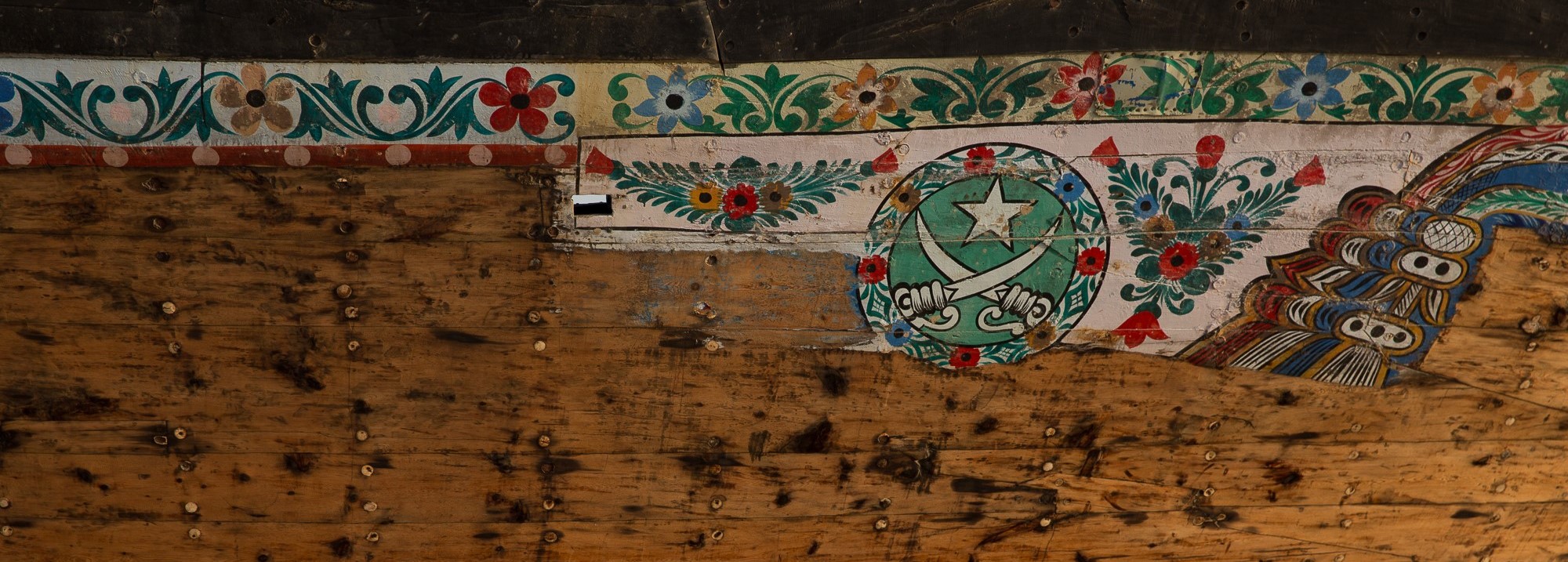
With nearly 1,000 Rohingya Muslims killed and 500,000 having fled to neighbouring Bangladesh, the international community’s attention is once again on Myanmar’s Rakhine State.
The latest surge of violence follows attacks by Rohingya militants on police posts on August 25, 2017, which led to a brutal military crackdown on the civilian population. Horrific accounts of extrajudicial killing, rape and infanticide have been reported. The United Nations Secretary General António Guterres described the situation as “the world’s fastest-developing refugee emergency and a humanitarian and human rights nightmare.”
Over the years, repeated suppression by the Burmese state, political persecution and social isolation have forced hundreds of thousands of Rohingya Muslims to seek refuge in other countries—including Pakistan, which hosts the world’s second largest Rohingya refugee population.
The National Alien Registration Authority estimates that there are 350,000 Rohingya Muslims in Pakistan, largely settled along Karachi’s coastline. While most worked in agriculture in Myanmar, they joined the fisheries sector once they arrived in Pakistan. Others are employed in the construction and textile industries; while home-based women workers are involved in tobacco-making, carpet-weaving, and embroidery.
Rohingya Muslims in Karachi pass off as Bengali, with whom they share a common culture and language. A large number of Bengalis who came to Pakistan from Bangladesh in the 1970s and 1980s were from Cox’s Bazaar and Teknaf, which is close to the Burmese border, so their identities merge easily.
Statelessness is the basis of the Rohingya’s long-suffering, and it continues to haunt them in their adopted countries. In Karachi, they cite racism and discrimination at the hands of local authorities, including routine harassment by the police and Rangers. Due to their lack of formal documentation, they can’t access government jobs or sit for school board examinations. Few public schools exist in close proximity to their localities, but there are madrassas on nearly every street.
Most are reluctant to speak to journalists. One madrassa teacher said he would only speak on the condition of anonymity. He said he arrived in Karachi “illegally” in the 1980s, and might run into problems with the law if his identity was revealed.
While many are hesitant to talk about themselves, they’re more than willing to speak about the violence in Myanmar, to have their grievances heard by the world.
In Ibrahim Hyderi, an elderly Rohingya fisherman, lounging around a dozen of his grandchildren (“my army of 100”), said that if the Pakistani government allowed it, he would “get up this instant and fight the oppressors in Myanmar.” His wife, standing by the door, half-listening, suddenly jolted to attention: “What are you saying? You can’t fight, old man.”
Overhearing the conversation, another fisherman man cut in: “You know, even if a 1,000 mujahedeen left their countries to fight for the Rohingya, it wouldn’t make a difference. It would be like a small vessel waging a war against the sea.”
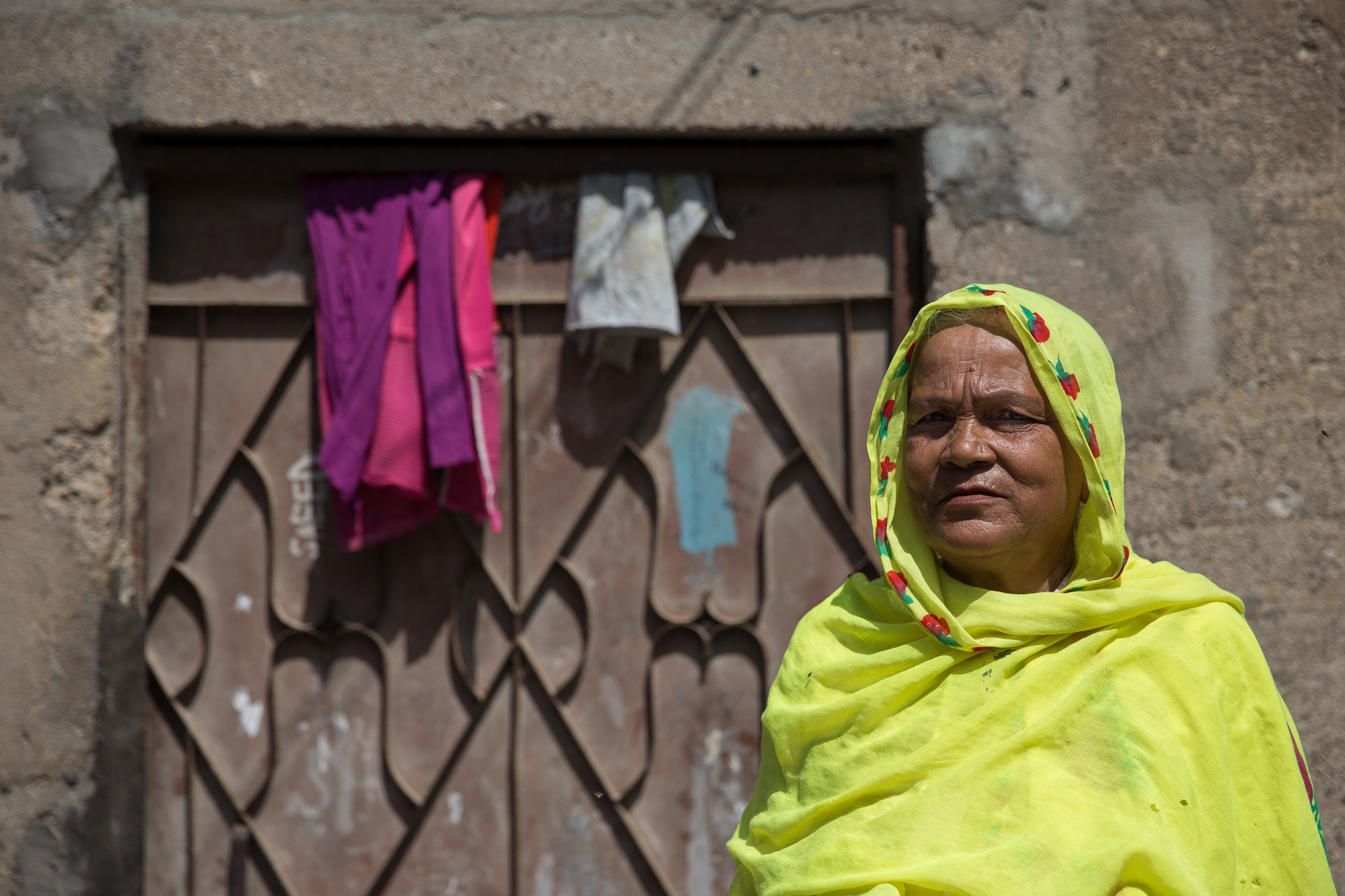
AYESHA, 70
We were chased out of our homes in 1971. I was forced to leave Burma, along with my husband and two sons, who were five and seven years old at the time. The Burmese military had launched a campaign against us: they beat our men, assaulted our women.
After spending a year in a village in Bangladesh—a jungle, actually—my husband decided it was time to leave. We got on a train, travelled through India, and arrived in Lahore first. Then we took a bus to Karachi.
Since our arrival in Pakistan, we’ve lived in the same locality in Korangi—but I don’t speak Urdu. Like most Burmese Muslims, I speak Bengali.
My sons are married and have their own families. They work at a shrimp processing factory. I have a daughter, who’s also married, and lives with me. She makes fishing nets at home and earns about 5,000-6,000 rupees a week.
My husband passed away 11 years ago. He used to catch fish from the sea. My son-in-law is also a fisherman. He makes 2,000 to 3,000 rupees a week. Sometimes, he returns home empty-handed. What happens at sea, only the men know: it’s their territory.
Our community is very strict about purdah. Women barely leave the house, except when it’s necessary, or for special occasions. It’s not considered ‘good’ for Bengali women to be seen on the streets.
I have three grandsons and six granddaughters. All of them go to a madrassa to learn the Quran and a few other subjects. I look after the children and the house, I do all the cooking and cleaning. As a family, we have to work very hard to make ends meet.
Our neighbourhood suffers from electricity and water shortages. There’s no government hospital nearby, and there’s a lot of illnesses here. Despite these issues, I feel content. I’ll never go back to Burma. I don’t consider myself to be Burmese, I’ve never even had a formal Burmese identification card. I’m Pakistani-Bengali. I got a Computerised National Identification Card (CNIC) seven years ago.
I’m not angry at the Burmese nation, the emotion I feel isn’t anger. I feel hurt. Imagine if your country didn’t give you enough to eat, wouldn’t let you to sleep in peace, to clothe yourself—wouldn’t you feel the same way?
Until recently, I was in touch with my father and siblings in Burma. We used to speak on the phone, exchange letters. But for the past five or six months, we’ve lost all communication.
We haven’t received any news and have no knowledge about their whereabouts.
I don’t know why our people are persecuted. Perhaps our elders knew, perhaps men of status and learning know—but I don’t.
My wish is that the people of Burma live in peace, this is my only request to the world.
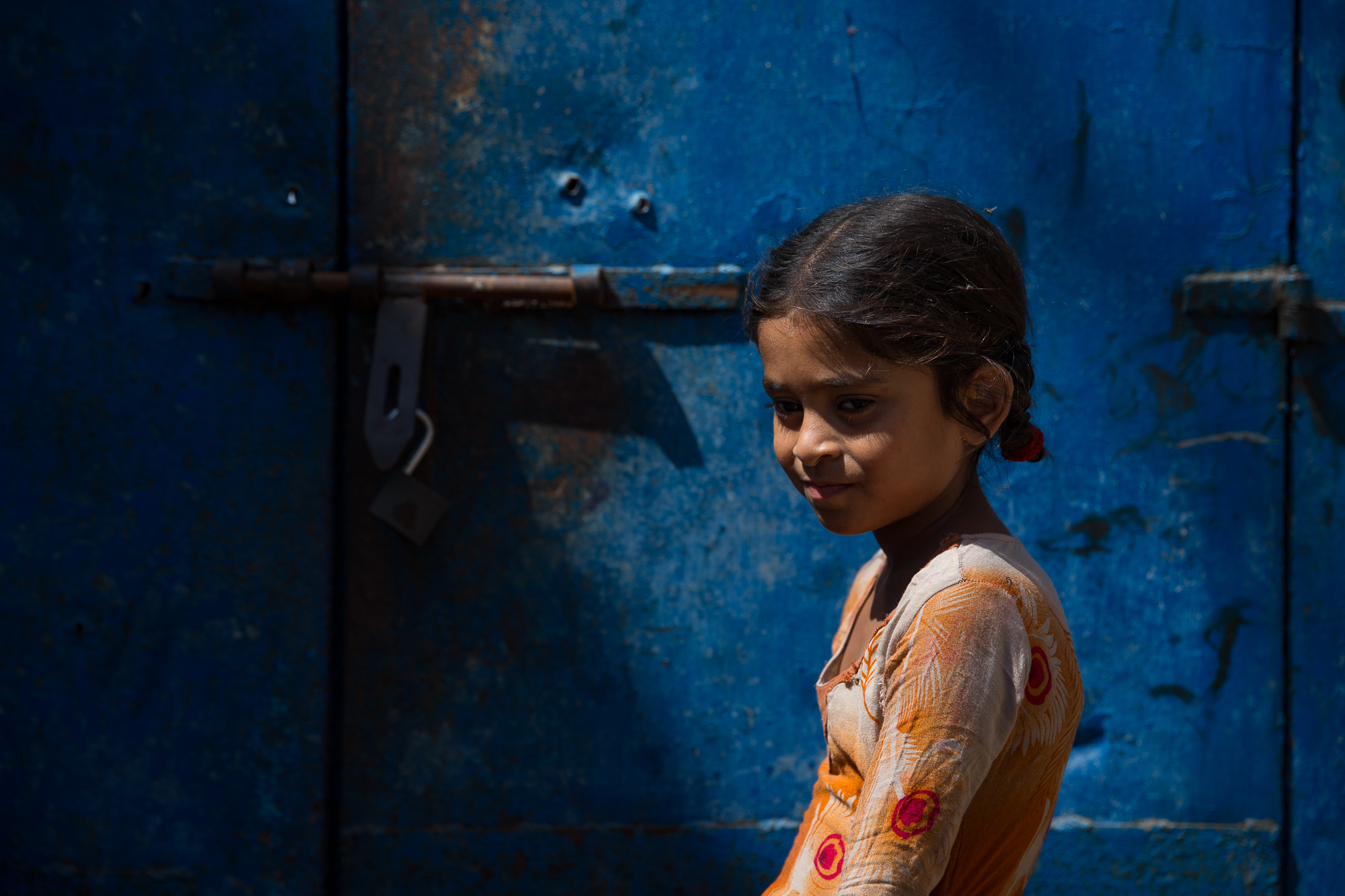
IQRA, 8*
I live with my grandparents, mother, father, and sisters. In my house, I’m the eldest child, and the only one who goes to school. They teach us English, Urdu, math and computers.
After school, I go to a madrassa to read the Quran.
I have so many friends— Khadija, Fatima, Mehvish, Parween, Ayesha—and I’m smart! I know how to speak Bengali, Urdu and Sindhi.
My father works at a shrimp processing factory. He says I can be whatever I want to be when I grow up. He wants me to get a good job, maybe become a doctor. But when I grow up, I just want to be a woman—like my mother.
My grandfather is Sindhi. He used to be a fisherman, but he’s now dedicated his life to religion. He goes to the mosque for two of his daily prayers, and says the remaining three at home. Sometimes, he gives the call to prayer.
I’m very close to my grandmother. She was born in Burma, and came to Karachi with her parents when she was little—maybe two or three years older than I am now.
She has no memories of Burma, but she remembers living parts of her childhood in Bangladesh in the 1970s. My great-grandparents were afraid that if they stayed on in Bangladesh, the Burmese government would call them back any time. They spoke of the cruelty they were subjected to there. My grandmother’s elder brother came to Pakistan first, and told the rest of the family to join him, because of its distance from Burma.
We might still have family there, but none that we know of.
My grandmother says that since we live in Pakistan, we’re Pakistani. Everyone in my family has a CNIC—except her. She says that when her parents would go to the National Database and Registration Authority (Nadra) office, they would chase them away, saying they were Bengali, that they didn’t have birth certificates or formal documentation.
My grandmother says our area is completely safe, and we don’t have any problems here.
But I do have a problem: my sister Musqaan. Woh bohat tang karti hai (she gets on my nerves).
*This interview was put together after speaking to Iqra and her grandmother, who did not wish to be photographed
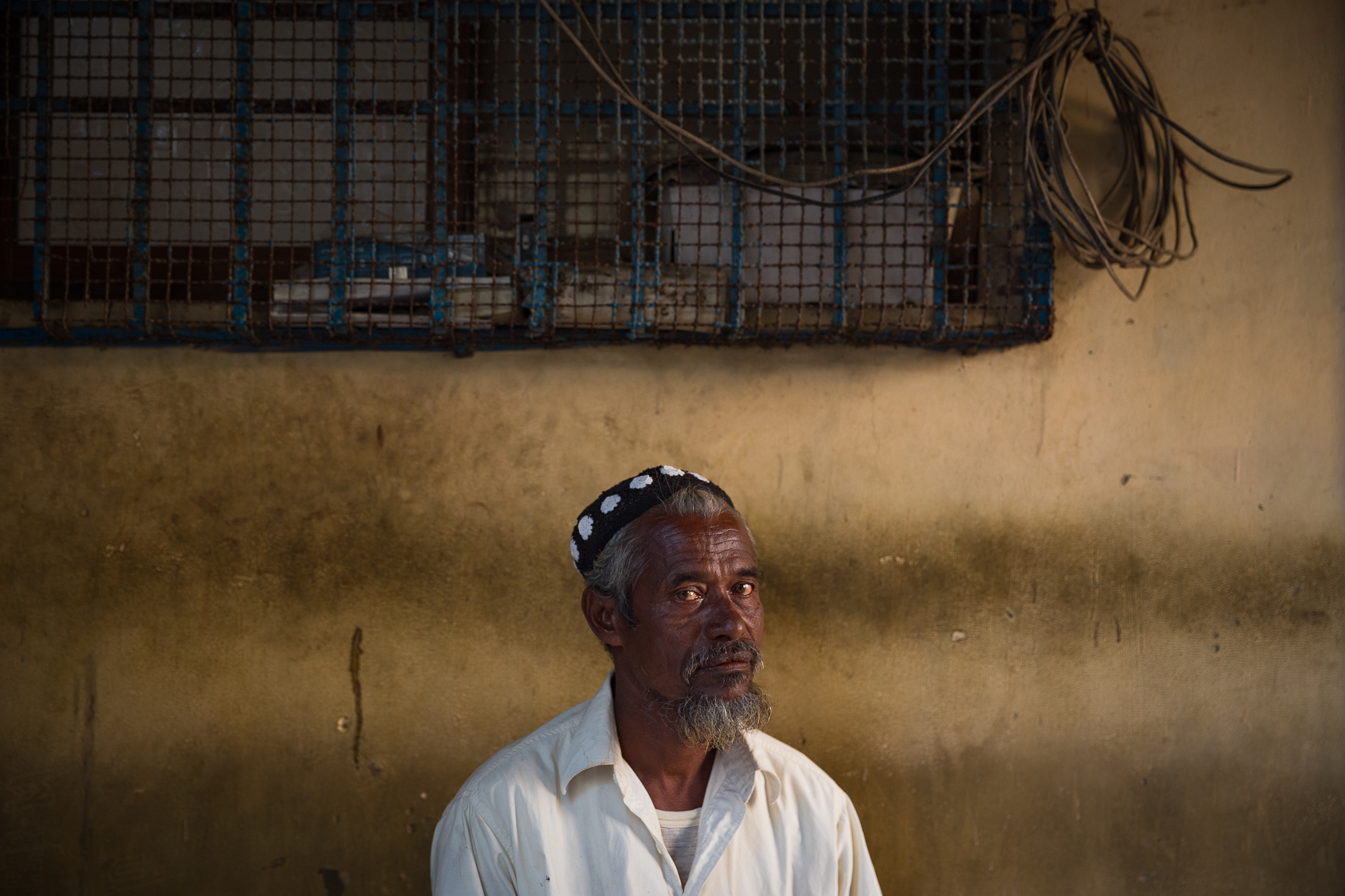
SULTAN, 45
My parents arrived in Pakistan in 1973. They had to escape Burma because of the oppressive working conditions there. They would toil in the rice fields from dawn to dusk, and half the produce would go to the landowners. If they didn’t make enough, they were sent home on empty stomachs.
Despite the exploitation, they said Burma was peaceful. The violence started after they left.
One died in the hospital; the other died at home. They left me with nothing. I never went to school. I only went to a madrassa for a while and memorised some chapters of the Quran.
My father needed me to work with him, so I became a fisherman at a young age.
Fishing is the only thing I know. There are ten mouths to feed at home. My youngest child is only eight months old. I make 2,000 to 3,000 rupees a week, but it’s an uncertain livelihood.
Sometimes you get a catch, sometimes you don’t.
Most of my life is spent at sea. I leave at eight in the morning and return 48 hours later, after selling my catch at the Harbour. Then I leave at eight again the next day.
We’re not allowed to go towards Gadani, Sonmiani and Pasni. If you don’t have a CNIC, the authorities send you back. We have problems everywhere we go—on land, at sea—because of our lack of formal documentation.
There’s no gas in our locality, and we get water from tankers, which costs between 4,000 to 5,000 rupees. We don’t have electricity; we get it by pilfering. When we got an electricity line through proper means, our bill suddenly spiked up to 30,000 to 50,000 rupees. We only use two light bulbs and two fans in our house—so how is this possible?
The police frequently raid our homes. Whenever there’s crime or terrorism in the city, they pick up innocent men and boys from our locality. They’re only released after we pay them—anywhere from 10,000 to 50,000 rupees.
Otherwise, they’re thrown in jail.
I have an old CNIC, which has now expired. They’re not letting me make a new one. My wife and I went to the Nadra office in Quaidabad and waited in a long queue for hours. She received her CNIC in 15 days, but I didn’t. I went back to enquire. They said I’m not entitled to one because I’m Bengali—and told me to go away.
My parents were Burmese, but I’m not. I don’t know anything about that country. I only know whatever my parents told me, about the living conditions there, about people who had to leave everything behind just to save their dignity.
I was born in Pakistan, I got married in Pakistan. My children are born in Pakistan. How can I call myself Burmese? We can’t go back, the children would never adjust to life there.
My biggest concern now is that my son won’t be able to sit for his exams next year. He’s in the ninth grade. Every day, he tells me he needs his CNIC, or they might kick him out of school.
I ask God to grant us peace here, and peace to the Muslims in Burma. My heart weeps for them. I can’t stop thinking about them, I’ve lost my appetite. There are so many countries in the world, so many atrocities, so much suffering—but none worse than this.
The oppressor is killing small children, they’re raping and killing women. We can only mourn for them, express our sorrow, and pray for them. We don’t have the means to fight. We’re poor people, we live by our labour.
A few days ago, I spoke to one of my uncles in Bangladesh. He told me some family members had escaped, but the rest have been killed in Burma. He requested us to pray for them.
May God grant them peace in the next life.
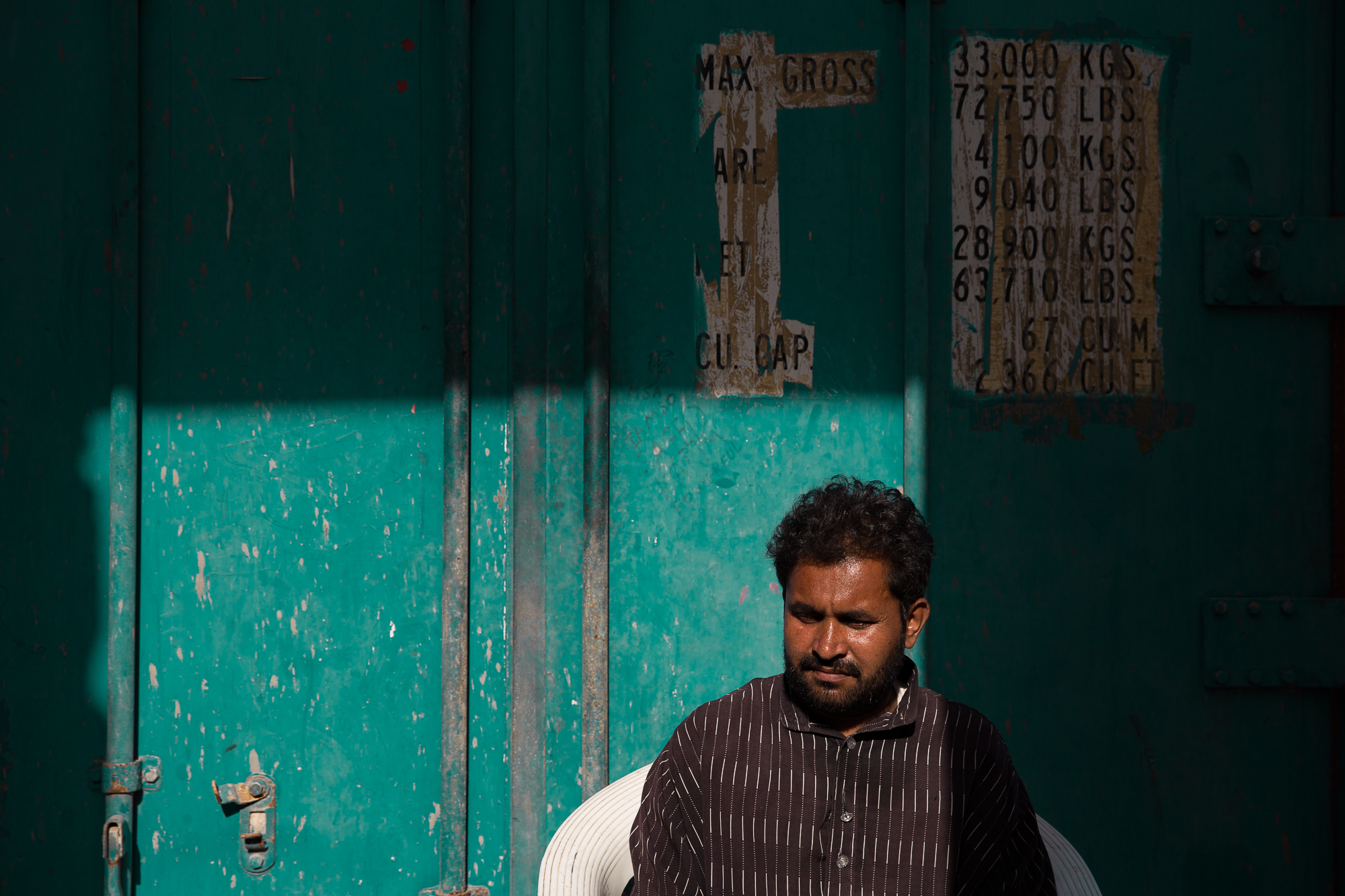
ABDULLAH, 31
I arrived in Pakistan on a bus with my parents and younger sister, sometime in the 1980s. We had to make a stop at Bangladesh first, then India, then Lahore. Our journey ended in Karachi. We lived in Orangi for two years, before moving to Korangi.
I don’t have many memories of Burma, but I remember my father saying that Muslims weren’t allowed to live in peace there, that they wanted us to ‘disappear’ from the land.
I never went to school in Burma. In Pakistan, I only studied for two months in the first grade.
I learnt Urdu here, picking it up from my friends and Indian films.
I used to work as a fisherman, but the sea is an unreliable source of income. So, for the past four years, I’ve been working at a fish-exporting factory. I work from nine to five, earning 15,000 rupees a month.
Seven years ago, I got married to a woman my parents chose for me. She was born in Pakistan, her parents came here from Burma. My younger sister is also married now.
We’re Burmese Muslims, but we call ourselves Pakistani. But when we go to the Nadra office, they say we’re foreigners. Unless people have genuine records, or are paying off the authorities, they don’t issue CNICs to us.
Whenever we step out of the house to go to another locality, the police stop and interrogate us. The first question they always ask is: “Where’s your CNIC?” Then they demand money. Some will let you off with 200 rupees, others will ask for 500 rupees. This happens to me at least twice a week.
My children are going to school. They were asked about their birth certificates, which they didn’t have, so I had to pay to get them made. What else could I have done?
We request the Pakistani government to issue CNICs to us—and to help the Muslims in Burma. I was told by one of my uncles that my grandfather has been killed. We last spoke over three months ago. Before, we used to talk on the phone two-or-three times a week. Another uncle and three of his children were also killed.
The rest of the family has disappeared.
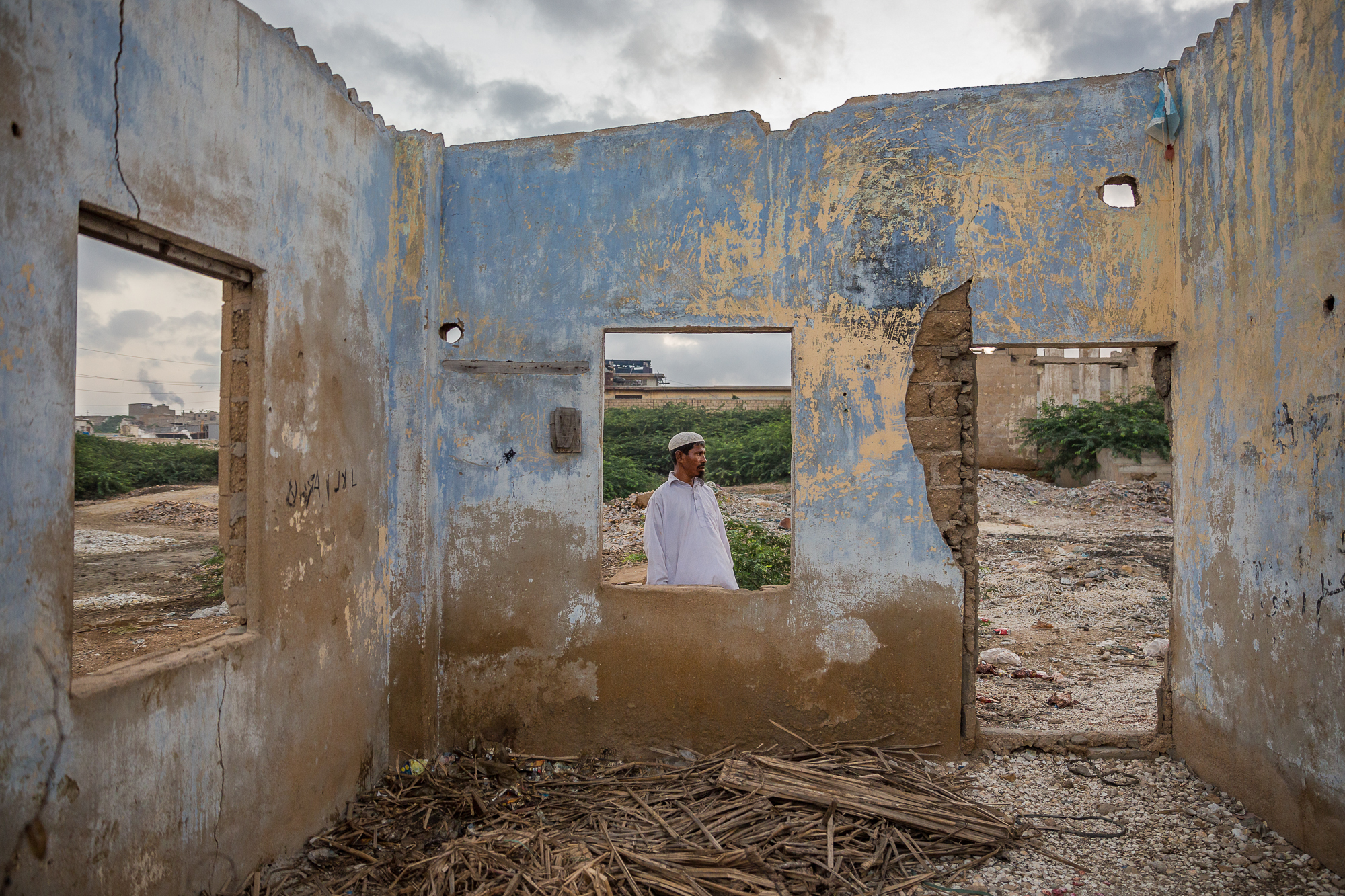
ABDUL MALIK, 50
I left Burma with my mother and father; I reached Pakistan alone. My parents were attacked while they were trying to escape Burma. Since they never received medical care, they died from their injuries in Bangladesh. My father went first; then my mother died a few days after him.
There was a lot of violence and chaos at that time.
A kind neighbour brought me with him to Pakistan. I was six or seven years old. He took care of me. I lived in his house in Korangi, until he has passed away. I had another uncle who lived in Pakistan. He has since moved to Saudi Arabia.
I have six children. My boys are all fishermen, like me. I work from eight in the morning till late at night, I only come home to sleep. We sell two-to-four kilograms of fish to a merchant at the Harbour, and keep one kilogram for personal consumption. I make 1,500-2,000 rupees a week.
I had my first CNIC made when I was 20. I had another one made during Benazir Bhutto’s government in the 1990s. Despite having a CNIC, I still get harassed by the police. They say things like: “You’re a foreigner. Burmese, Bengali.” They let me go after I pay them, usually 50 to 100 rupees.
Since I live in Pakistan, I consider myself to be Pakistani. I was so young when I left Burma, I know very little about that country or its affairs.
I had aunts and uncles living there, but we lost communication some 20 years ago. There was violence at that time, too. None of us had phones, so we used to rely on letters.
Then, one day, the letters stopped.
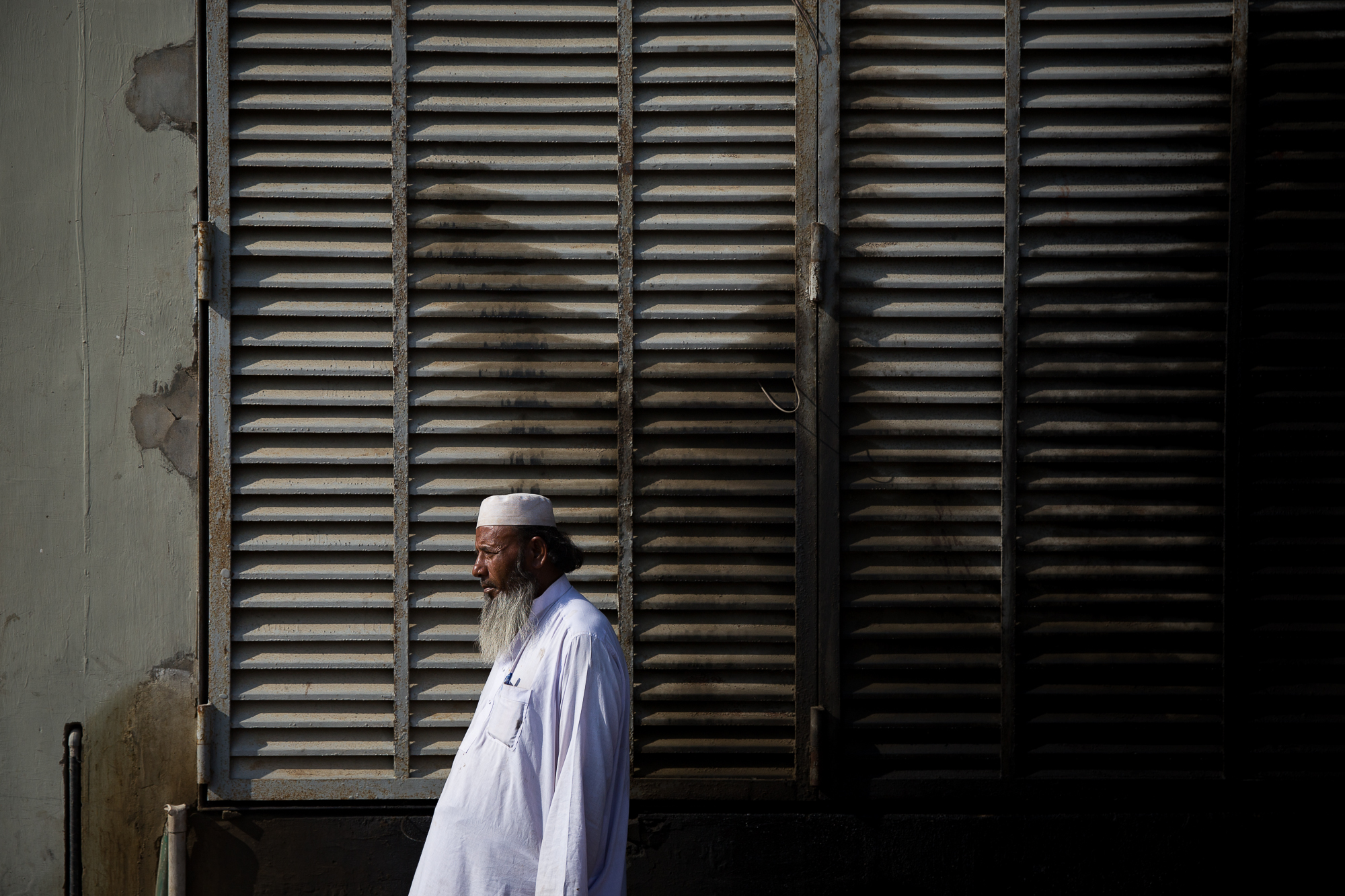
MUHAMMAD ISHAQ, 70
You want to know about Burma? I’ll tell you. I’m an educated man, I know the history. Others here wouldn’t know.
I’m not affiliated with any political party, I only belong to the party of God.
I was born in East Pakistan, right on the Burmese border. My father was Pakhtun. He was enamoured with the idea of Pakistan. After East Pakistan became Bangladesh in 1971, we moved to Karachi. I used to be a fisherman, but I’m too old to work now. I spend my time in prayer and thought. I think about Burma a lot. I think about the state of humanity in general, and keep in touch with the scholarly world by reading news from Pakistani, British and Arakanese sources.
I’m aware of history dating back 200 years ago, when Muslims ruled the land, but I’ll tell you about the more recent past.
When Burma was liberated from the British, Muslims stood by it. They were in the armed forces, the police, and the judiciary. However, soon afterwards, the Burmese made a different set of plans, and Muslims were kept in the dark.
Over a period of 15 years, Burmese officials retired from several posts, but Muslims were not substituted or taken as replacements. They were restricted from going abroad to get higher education, and remained illiterate and marginalised. They weren’t eligible for government jobs.
Then, religious scholars were jailed and murdered. It was a period of bloodshed. Muslims were banned from travelling from one country to another, one province to another, one city to another—and finally, from one village to another.
They weren’t allowed to get married without the approval of the government, or have more than two children. Restrictions were also placed on trading timber, and the hunting and selling of marine and mountain animals.
Then in 1982, a bill was passed which took away all their rights. Their identity cards, weapons, and other belongings were snatched by the state. These restrictions remain to this day.
It was as if the Muslims were trapped in a cage, an open-air prison. Starvation crept in, and young men and boys started fleeing the country in droves. Three years ago, around 150 Rohingya men sold their gold and other possessions to buy weapons, so they could break out of this prison.
They killed a handful of policemen.
The Burmese state was enraged. They were afraid Muslims would defeat their 70-year-old plan, stand on the battlefield, and claim their own identity.
So they began a campaign against them.
Two of my wives’ brothers are in Bangladesh, one is in Malaysia. Another brother was in Burma. His sons were shot and killed. He escaped to Bangladesh with his other children. I send money to them to buy food. They’re going to live in a camp, and will get financial support from relatives in Pakistan and Saudi Arabia.
When the Burmese military attack, they don’t go after the militants—they kill civilians. When villages were burned down, some Rohingya families took refuge in the mountains and forests. The police, military and terrorists hunted them down and killed them. The media doesn’t know this, but the people do. They’ll take you to the bodies.
I’ve barely slept in the past three weeks because of the mass extermination campaign that has taken place. Their pain is our pain. If they have eyes, I have eyes. If they have limbs, I have limbs. If they have a heart, I have a heart. If I rejoice in another being’s suffering—how can I call myself human?
This article was originally published in the Express Tribune on October 13, 2017.